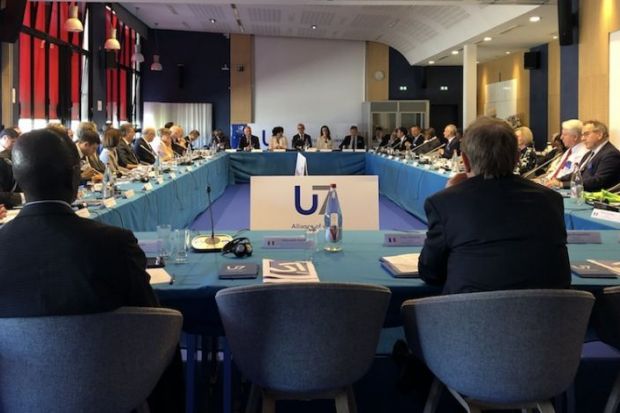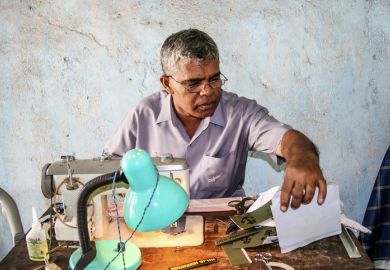A “pioneering” global group of universities have committed to take action on worldwide issues such as climate change and social inequality.
The U7+ group held its first summit in Paris, hosted by Sciences Po on 9-10 July, ahead of the G7 summit in Biarritz.
A total of 47 heads of institutions from 18 countries took part, with universities from across the G7 group of advanced economies – Canada, France, Germany, Italy, Japan, the UK, and the US – joined by invited institutions from nations outside the G7.
Founding members of the U7 include 13 French universities, five each from the UK, Canada and Germany, four from Japan, three from Italy, and Columbia University in the US. The UK members are the universities of Cambridge and Edinburgh, UCL, Imperial College London and the London School of Economics.
The group’s mission statement includes bringing together universities from G7 countries and beyond, which are “convinced of the key role of universities as global actors, to engage in discussions leading to concrete action to address pressing global challenges”.
At the summit, they committed to principles to tackle five major global challenges – the “key role of universities in a global world”, climate change and cleaner energy, inequality in societies, technological transformations, and community engagement and impact.
The “very DNA of the U7+ is that it is an alliance of world universities who want to voice and also [demonstrate] the fact that they are actors on global affairs,” said Vanessa Scherrer, vice-president for international affairs at Sciences Po.
She pointed to the “distinctive” nature of the alliance, compared with other groupings of universities, in bringing together countries from across the world to tackle global issues.
“The fact that we can come together, almost 50 of us, and carry the same messages at the same time, makes it more of a reality than when we do that on an individual basis," she added.
The key principles to achieve the goals include steps that will be “championed” by one or two institutions, starting from September.
For example, UCL is championing collectively pursuing and creating interdisciplinary and cross-border research projects that have a societal impact on UN Sustainable Development Goals (SDGs).
These SDGS set goals on food and health, climate and energy transition, sustainability, and equal rights and opportunities.
Dr Scherrer brushed aside any scepticism about whether the talk will lead to action as “always what pioneers face”, adding: “I think collectively we have been agents of change here.”
The official declaration signed by the 47 leaders was presented to Emmanuel Macron, president of France, who chaired the G7 summit on 11 and 12 July.
The U7+ will meet again next year, when the US will take over the G7 presidency.
Register to continue
Why register?
- Registration is free and only takes a moment
- Once registered, you can read 3 articles a month
- Sign up for our newsletter
Subscribe
Or subscribe for unlimited access to:
- Unlimited access to news, views, insights & reviews
- Digital editions
- Digital access to THE’s university and college rankings analysis
Already registered or a current subscriber? Login









